The Future of Mobility

Our journey is far from over
We’re charging forward, making strategic investments in the future of mobility. And what a future it will be. A mobility future that’s unrecognizable from today. One that is cleaner, faster and smarter in every conceivable way.
As we continue to open new frontiers for freedom, we look toward a world where on-demand, shared, connected and most importantly, sustainable, mobility options are available to serve everyone.
As pioneers in the sector, we’ve always had our eyes on the road ahead.
Electrification & Hybrid Mobility
In early 2023, with our appointment as official national distributor for MG Motor in Morocco, , GAC Motor in Egypt, and BYD in Türkiye we continue our electrification journey with a comprehensive portfolio of EV possibilities. But we’ve long supported the move to more sustainable mobility and introduced Toyota Hybrid vehicles in our markets as far back as 1997 (Monaco).
Today we helping our customers choose a more sustainable approach, offering hybrid, or electric, vehicles across Türkiye, Monaco, Morocco, Algeria, Egypt, China and Japan, representing more than half of all sales, and rising to over 90% for some brands.
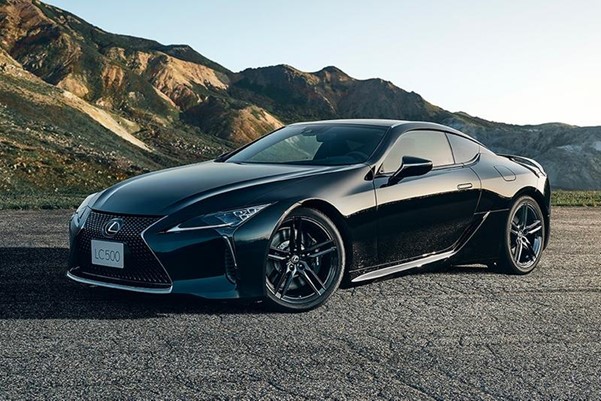
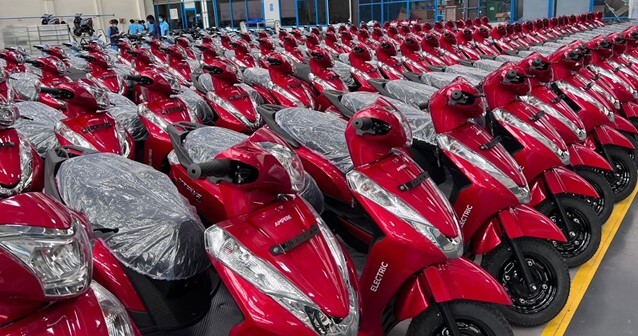
Greaves Electric Mobility
Investment will continue to drive the future of sustainable mobility worldwide – in all its forms, including electrified two/three-wheel transport.
Before the pandemic India became the sixth largest vehicle producer in the world with an average annual production of 29 million units. Of these, around 83% are two- and three-wheelers. The Govt.’s Road Transport Yearbook suggests that India has the highest penetration of two-wheel transport in the world.
Traditionally, this sector’s EV penetration is relatively low – but is increasing rapidly. In mid-2022, electric three-wheelers outsold internal combustion engine models for the first time – a faster transition than most analysts expected, and faster than the two-wheel market, where electric penetration is around 4-5%. EV adoption is expected to accelerate significantly in the coming years, with the Indian Government targeting most of this segment to become electrified by 2030.
Recognizing the urgent need to accelerate the transition in developing economies, in 2022, Abdul Latif Jameel made our first investment in India’s fast-growing e-mobility sector, in what is now the world’s fourth largest automotive market, and our planet’s second most populous nation of some 1.4 billion people.

This alliance will hasten the journey of Greaves Electric Mobility – already one of the fastest growing EV brands in the market – into a significant electric two/three-wheeler mobility player in India. This will help the nation meet its net-zero commitments, reduce urban pollution levels and affordable e-mobility will enable more people on a path to economic independence – and a cleaner, more sustainable society.
The Greaves Electric Mobility portfolio includes a range of affordable, efficient mobility solutions helping to drive sustainable and clean transportation for individuals and businesses.
Ultimately, this investment will enables exploring potential to expand the portfolio to other markets across the Global South as a partner in India’s e-mobility revolution!

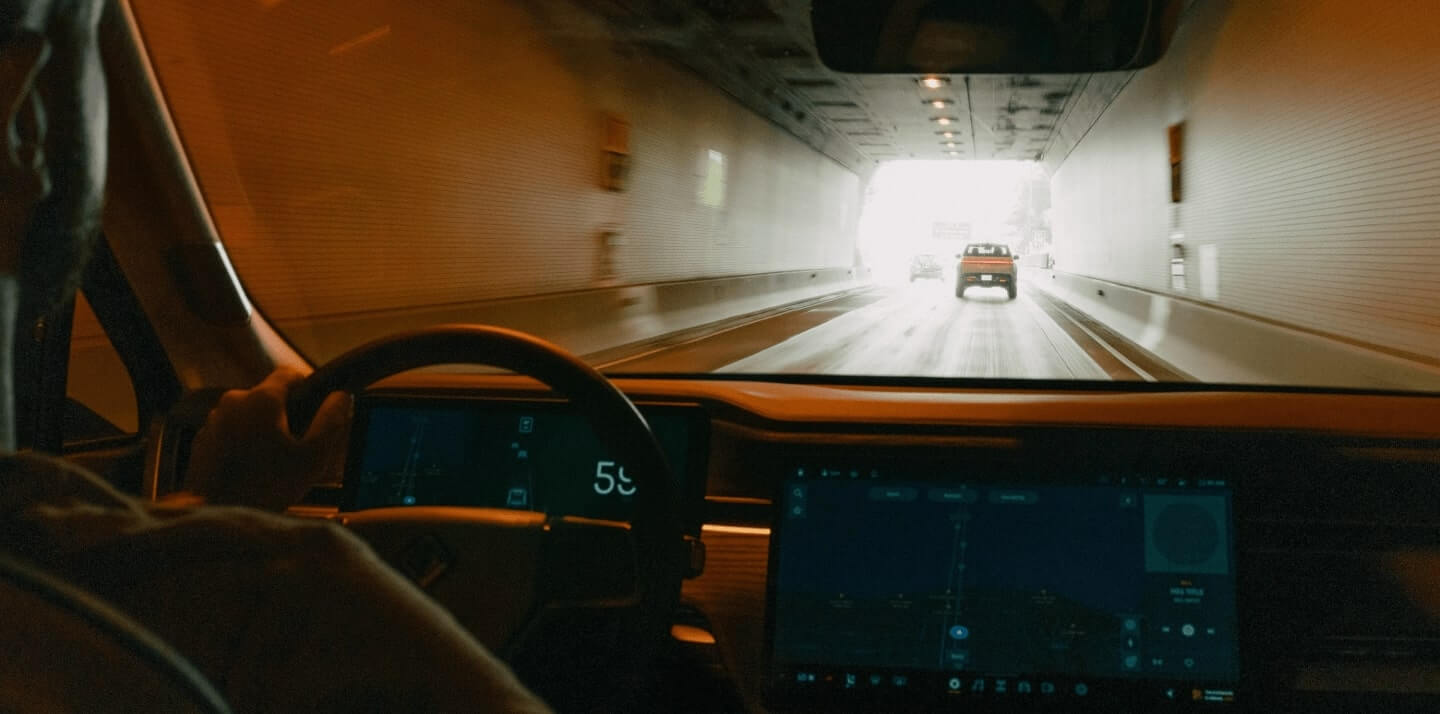

RIVIAN
Founded in 2009, by entrepreneur RJ Scaringe, RIVIAN is an innovator in electric adventure vehicles and future mobility brand who are developing vehicles and technologies to excite and inspire people to get out and explore the world, and to go further into nature than ever before – sustainably.
Transportation shouldn’t limit us, it should liberate us, and each journey we take should leave a mark on the human spirit, not the planet. That’s the ethos at RIVIAN, as they work to dispel many of the myths about electric vehicles with their adventurous and collaborative approach to the sector. Their vertically integrated and connected electric platform, and innovative drivetrains, can be flexibly applied to a range of applications, including the company’s adventure products as well as B2B products such as the Amazon last mile delivery vans.
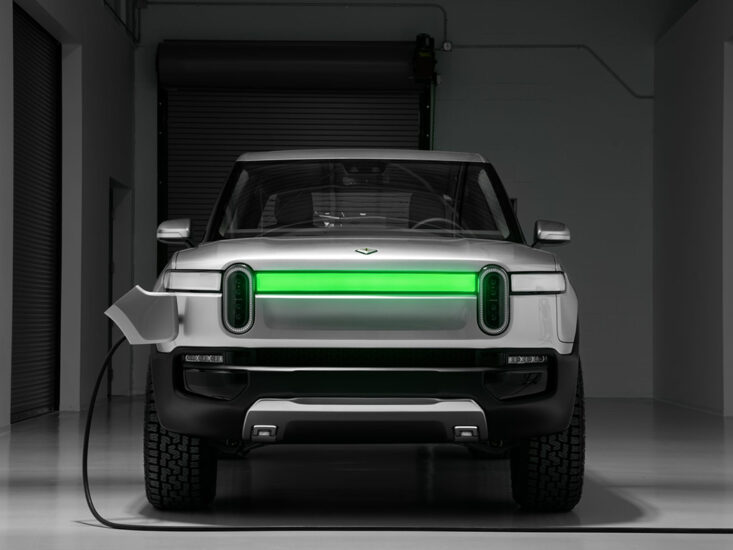
Sharing its vision for more sustainable mobility solutions, the Jameel Family became enthusiastic early-stage investors in RIVIAN.
Based in Irvine, California, home to their vehicle engineering and design, electronics, software, propulsion, battery systems, supply chain and logistics, IT, as well teams operating their customer facing platforms, RIVIAN is designing its vehicles to facilitate ‘car-sharing’ with their autonomous features.
Manufacturing is centered on Normal, Illinois, where the R1T pick-up and R1S SUV, as well as commercial vans are produced. Other facilities include Plymouth, Michigan; Palo Alto, California; Wittman Arizona; Vancouver, British Columbia and Woking in the United Kingdom.
RIVIAN is on a mission to keep the world adventurous forever; believing there is a more responsible way to explore the planet and so are determined to make the transition to sustainable transportation an exciting one – we’re proud to support the journey!
The scale of the challenge is enormous, but we’re lucky to be a part of this — to be able to help solve how we shift our planet’s energy and transportation systems entirely away from fossil fuel.
RJ Scaringe
Founder & CEO
RIVIAN
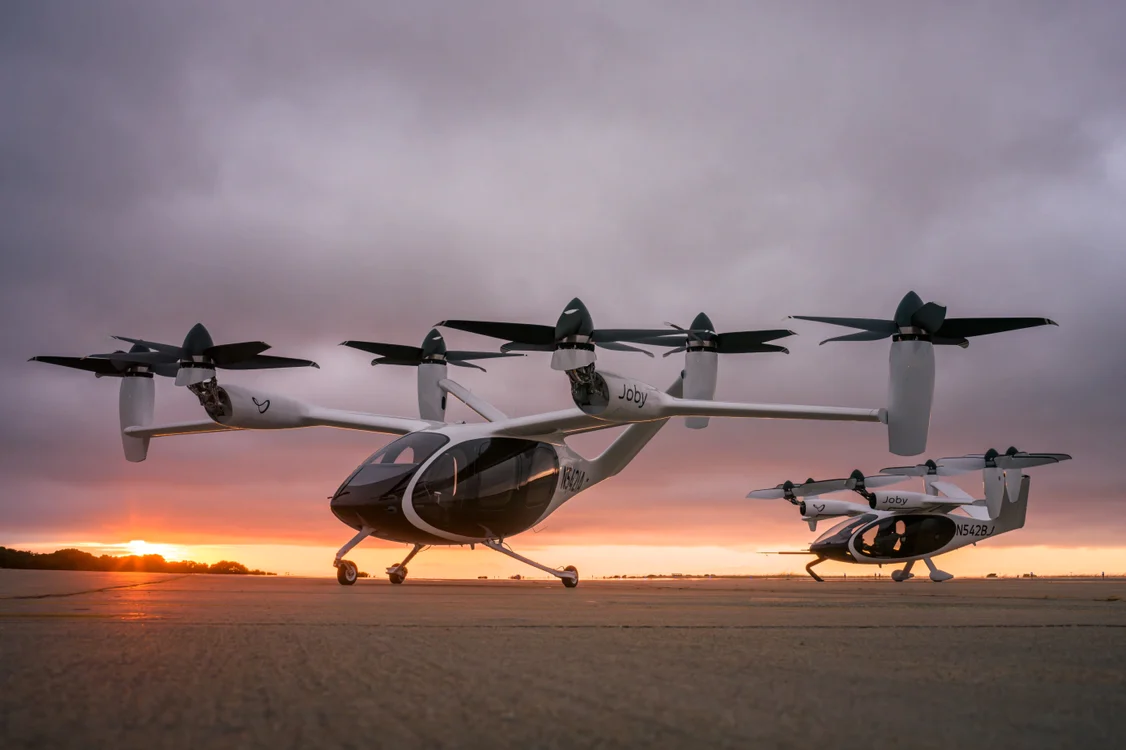

Joby Aviation
The future of mobility is so much more than road transport. Looking to the skies, JIMCO invested in California-based Joby Aviation’s revolutionary electric vertical take-off and landing (eVTOL) aircraft, which are pioneering electric aerial ridesharing.
JOBY Aviation has spent over a decade developing and testing their near silent, zero-emissions, aircraft capable of travelling more than 240 km on a single charge, enabling a pilot and four passengers to leapfrog over congestion below at speeds of up to 320 kph. The company has a long-term vision to build a global passenger service that saves a billion people an hour every day, whilst simultaneously helping to protect our precious planet.
The aircraft is designed to meet the uncompromising safety standards set by the US FAA and other global aviation regulators is currently undergoing a multi-year testing program with the FAA to certify the craft to enter for commercial service in just a few short years.
Hydrogen Mobility
Today, hydrogen fuel cells, as a viable mobility power source, are on the cusp of entering the mainstream. Their zero emission credentials makes a strong positive argument for adoption in transportation systems, both public and private.
Experiments with hydrogen as a fuel source reach back to Swiss inventor Francois Isaac de Rivaz, in 1807. However, the 1966 GM Electrovan is generally considered to be first road-going hydrogen fuel cell car powered by a 5 KW Union Carbide fuel cell with a range of 120 miles – it was only driven on company property.
The European Council has today adopted legislation that will see hundreds of hydrogen refueling stations deployed across the continent.
Adoption of the Alternative Fuel Infrastructure Regulation (AFIR) will see the rule published in the EU’s official journal after the summer and will enter force 20 days after publications with the rules due to apply from six months after the date of entry.
AFIR dictates that hydrogen refueling stations serving both light- and heavy-duty vehicles must be deployed in all urban nodes and every 200km along the core TransEuropean Transport Network (TEN-T) by 2030.


